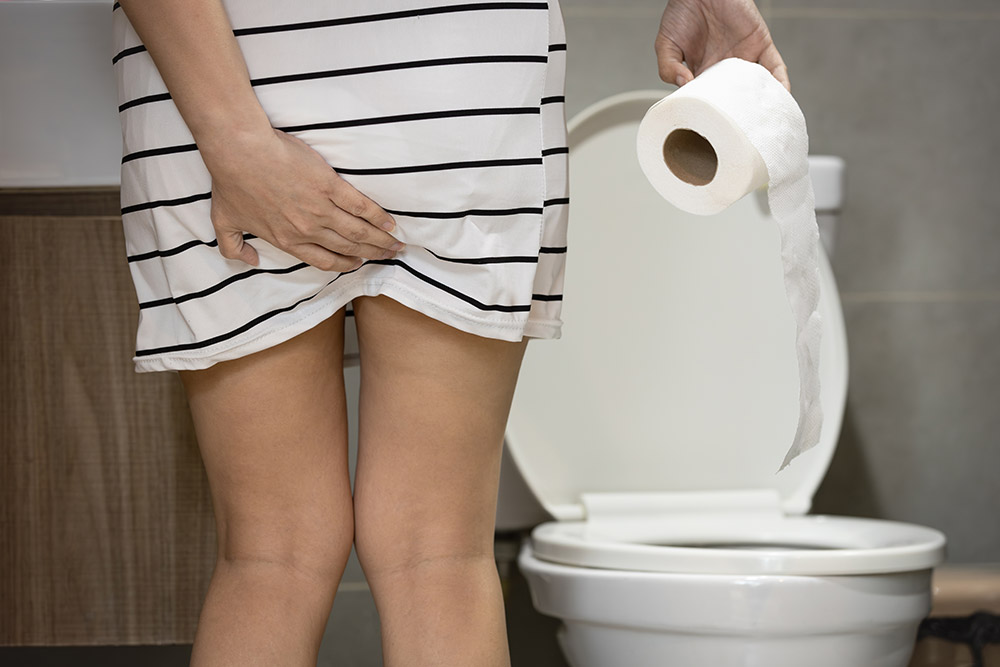
It is frightening to see blood in your stool. You can ask yourself, when is rectal bleeding serious? or "Do I care about blood in stool? You are not alone. The same questions are faced by many people. At Gastrodoxs, we aim at providing you with friendly tips on a straightforward basis. We consulted Dr. Bharat Pothuri, a reliable gastroenterologist in Houston, to give us his views.
Rectal bleeding refers to the bleeding of the rectum (or anus). Your round red drops may appear on the toilet paper. Or you could find darker tarry stool. The blood may be mixed in your stool or may be on the surface.
According to Dr. Bharat Pothuri, - Blood in the stool is a frequent alarm to the patients. However, it may come up due to tiny tears or minor veins, and not serious disease.
Majority of rectal bleeding is associated with simple and curable causes. Here are the top culprits:
Most of these are mild. But, what do you mean by knowing when is rectal bleeding serious? Read on.
It assists in identifying the red flag signs. You ought to consult the doctor immediately when you have:
Dr. Pothuri further says, when is rectal bleeding serious, when you notice any of these occur when you have to go to the doctor immediately.
It is conditional upon the quantity and numbers. An anal fissure may be simply a small spot following a hard stool. You may frequently do that at home. However, in case the bleeding is repeated (days or weeks), you ought to consult a specialist.
The most important considerations of should I worry about blood in stool are:
Although small bleeds are enough to indicate a larger problem. When in doubt, get checked.
Yes, hemorrhoids may be very bloody. When you strain they may burst and gush. However bleeding due to hemorrhoids is generally bright red and painless. You can observe it only during wiping.
Many patients fear the worst. The reality: the majority of the rectal bleeding is benign. The percentage of colorectal cancer is only around 5%-10% of all cases.
Key differences:
As Dr. Pothuri tells me, I inform my patients, Bleeding is not a sure thing of cancer. Yet you should not ignore it.' Colorectal cancer can only be eliminated by a colonoscopy.
To learn more about the signs of colorectal cancer, go to the American Cancer Society or the National Cancer Institute.
Persistent bleeding implies the presence of blood in several weeks or months. Watch for:
Any of these chronic rectal bleeding symptoms you notice should be followed up. schedule an appointment
A gastroenterologist is able to diagnose and treat gut problems. The following are situations when to refer a gastroenterologist to see about rectal bleeding:
Houston patients: To find a "relied-on physician with the symptoms of rectal bleeding Houston," one can refer to Dr. Bharat Pothuri of Gastrodoxs. In his office, there is same day visitation of urgent issues.
|
|
|
|
| Color of blood | Bright red | Dark red or black (melena) |
| Volume | One or two drops, streaks | Blood pooled, heavy |
| Pain | Light pain | Severe pain |
| Frequency | Rare or one - time | Frequent or ongoing |
| Companied symptoms | Mild itching | Feeling dizzy, a fever, fainting |
| Self-care response | Warm baths, stool softeners | IM medication |
In case of the mild bleeding, attempt the following:
When the bleeding ceases in a day or two, you probably do not need to see a doctor. However, when it persists, then you want your gastroenterologist called.
At Gastrodoxs, we introduce you to the best gastroenterologists in Houston. Dr. Our team is headed by Bharat Pothuri. He has 15+ years of experience in the diagnosis of rectal bleeding.
What you can expect the first time you visit:
My intention is to ensure that all patients feel safe, Dr. Pothuri says. You will come away with a clear idea of what is coming next.
Preventing rectal bleeding would be caring about your gut health. Try these habits:
Problems can also be spotted early when screening the colon in the event of age after 45.
For more reading, check:
Bloody diarrhea is scary. However, the majority of causes can be treated. Ask yourself:
And just in case you are not sure when rectal bleeding is serious, do not forget about the red flags: heavy-flow, dark stool, dizziness, and incompletely disappearing symptoms. Gastrodoxs and Dr. Bharat Pothuri are available to assist the people of Houston. No one cares more than your well-being and happiness.
We wish that this guide would make you feel knowledgeable and confident. You can also contact Gastrodoxs and schedule your appointment to meet with Dr. Bharat Pothuri.
Rectal bleeding is severe when your stool is heavy, black or tarry, you feel faint or suffer excruciating pain.
One portion of bright red blood following constipation is not a big deal. But if it repeats, see a doctor.
Yes, hemorrhoids may be very bloody when they burst. But this hemorrhagic is not painful and is usually bright red.
Not always. Bleeding is mostly benign in nature. Cancer can be ruled out by a colonoscopy.
Continued bright red blood, new cramps, diarrhea or constipation and anemia fatigue.
When bleeding continues over a period of more than a week, is heavy or you are experiencing fever, severe pain, or have a family history of colon cancer.
They check your history, give you a physical exam, blood work, stool work and usually a colonoscopy.
Yes. Proper diets consist of high-fiber foods, lots of water, and exercise to decrease constipation and straining.
Dr. Bharat Pothuri of Gastrodoxs.com also provides prompt care and appointments on the same day in case of an urgent matter.
Minor bleeding caused by fissures or hemorrhoids can be ameliorated through warm sitz baths, cold packs, stool softeners and high fiber diet.